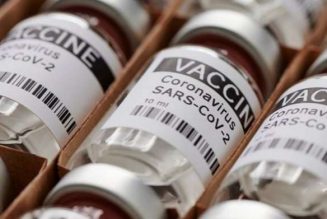
The Hot Springs Farmers and Artisans Market has locally grown fruits and vegetables among its offerings every Saturday, but a special booth will join the others this week hoping to drum up business for vendors of healthy food.
Little Rock-based nonprofit ARORA will be on site from 7 a.m. to noon to provide information and resources for people to learn more about taking care of their bodies and the possibility of using them to help others in dire need. To do so, ARORA has partnered with nonprofits such as Minority Health, Urban League, The Links Incorporated and UAMS.
“We’re doing things now to combat health inequities in communities,” Michael Scott, manager of communications at ARORA, said. “This is one of our initiatives to give back to the community, promoting healthy living, healthy eating, to actually help people stay off the (organ) transplant list.”
Scott said the initiative started out with a focus on communities of color, which often lack access to healthy foods and healthy living information, noting 10-15 counties were selected with the lowest overall quality of health across the state.
The efforts were recently expanded to the entire state because “we know that all communities in Arkansas are having health issues,” he said.
At their informational events, the group gives away cutting boards that feature eight QR codes that direct users to various health-related informational sites.
Some sites include tips for checking blood pressure, how to maintain healthy stress level, how to go see a doctor, and nutrition. They will also give away shopping bags with informational printouts.
The goal of the pilot program, which was planned last fall and began this summer, was to see if an impact can be made on individuals’ health before they have to be added to the organ transplant list.
According to a news release about the upcoming event, ARORA is the state’s “largest organ and tissue recovery nonprofit,” and the booth at the farmers market is intended to promote healthy lifestyle choices, which “could help prevent the need for a future organ transplant” for some people.
A 2019 study published in the American Journal of Transplantation states lifestyle choices can help to prevent organ failure in many cases and mitigate the need for a future transplant. Not all organ failures can be prevented by taking these measures, but a healthy lifestyle can reduce the risk of developing certain health conditions that often lead to organ failure and the need for organ transplant. These choices include eating right, getting plenty of exercise and avoiding toxic habits like the use of tobacco products.
“ARORA is committed to educating and empowering all communities across Arkansas about the lifesaving benefits of organ and tissue donation,” Audrey Coleman, director of communications at ARORA, said.
“We believe that through these community events, we can engage with individuals and families from diverse backgrounds and help them make informed decisions about their health as well as help others through donor registration,” she said.
This issue is near and dear to Scott’s heart, who started the initiative. When he started working at ARORA, he said there were over 100,000 names on the transplant list.
“The only way we can combat that is by trying to get more people signed up and do more transplants,” he said. “The approach that we’ve always taken is to try to keep people off the list. It’s just as good as trying to get donors for families. So, if you’re healthier then you don’t need to get on the transplant list.”
For the remainder of the summer, the group will visit several counties around the state, spreading information and resources for healthy living and eating and a reason to take it seriously. At the events, there will also be an opportunity to sign up for organ and tissue donations.
“This is really not something you’ll see a quick result in,” Scott said. “It’s more to get people to start thinking about healthy living, healthy eating, eating better. Most people don’t realize, to be an organ donor, you have to be in somewhat healthy condition. In a healthy state.”
Visit https://www.arora.org/ for more information.









